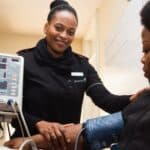The right Hotel, Bar & Restaurant Software Point of Sale (POS) system streamlines your business while the wrong one complicates and frustrates. It’s therefore important to be very careful before purchasing one for your business.
Buying the right one for your business may be overwhelming. But you can easily narrow it down to your budget, good customer support and features specific to your business. This means knowing exactly what you need in a POS system before purchase.
Here are 6 things to consider when buying a POS Software:
- Your budget
Determine how much you can afford to spend. Consider the license cost, monthly support fees and any additional costs. Make sure the vendor provides you with a list of all the costs you will incur before you start implementing and after.
- Features and customization
What features do you need from your POS Software? Can it be customized to meet your needs and preferences? Some of the things to consider include:
- Whether the POS Software can integrate with other third-party software or hardware components.
- Can the Software automate reservations/bookings for rooms, conferences and other facilities?
- Can it automate business data backup and achieve a central database for all business data.
- Can the software automate administration, finance and accounts?
- Can it track inventory?
- Can it manage employees?
- Can you sell items by weight?
- Can it accept future requirements you may need to add?
- Ease of Use
Take advantage of free trials and run the POS in a live environment. See how easy it is for the employees to use it. Identify potential problem areas, run all alternative scenarios and try out all features. This will help you know what kind of system you are buying.
- Customer support
Does the POS system vendor offer support after purchase? How quickly do they respond? Are they available during your working hours? Do they offer training and support before and after system purchase? Do they have educational information, troubleshooting guidelines or feature tipson their website? Remember that your payment includes the cost of running the software too.
- Visibility into hotel performance
Knowing how your hotel is performing is strategic. The POS system should provide relevant data on menus, guests, inventory, employees and other financial and operational data. This data should provide insights into an informed business operation. This then leads to reduced costs and an increase in profitability.
The POS should have the capability to integrate with data mining, reporting and analysis tools. These tools allow you to easily track and monitor KPIs. Depending on how integrative the tools are, they can trigger responses when inventory is lower than a certain number. This ensures that, for example, you can replenish ingredients before you run out.
Tracking financial metrics at your hotel can help you compare performances and know what areas to improve or change.
- Data security
The POS system must be equipped to safeguard customer data. It should send you an alert immediately roque access points are detected. It should also ensure employee accountability by tracking all cash collected by servers.
Buying a POS Software will also depend on the size of your hotel, the category and your strategic priorities.
Do some research online and find out what customers are saying about the vendor. Does the vendor provide frequent updates? Do they have an offline mode to prevent the business from going down when the internet does? Make sure that there are some customers attesting to their reliability and performance of the POS system.
TunaPOS is such a which converges latest Microsoft technologies with integrating the Hotel, Bar & Restaurant Software business process and making it easy to have a flawless process of Hotel and Restaurant administration.






